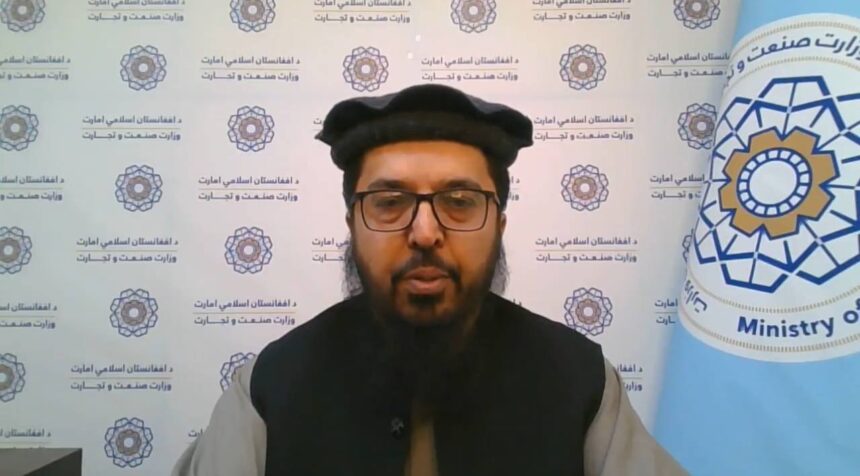RASC News Agency: As regional tensions escalate between Iran and Israel, concerns are mounting over the potential ripple effects on the already vulnerable economies of neighboring countries. In Afghanistan, now under Taliban rule, officials have issued conflicting and inconsistent statements, revealing internal disarray and raising doubts about the group’s capacity to manage economic fallout from global crises. Abdul Salam Jawad, spokesperson for the Taliban’s Ministry of Industry and Commerce, claimed in an interview with the group’s state-run national radio that the ongoing war in the Middle East has had “no adverse impact” on Afghanistan’s markets. He insisted that the country continues to experience stable prices, uninterrupted imports, and consistent trade flows. According to him, domestic market activity remains “normal,” and commodity prices are progressing “according to fixed benchmarks.”
In an attempt to downplay public anxiety, Jawad dismissed reports of food shortages in some provinces, characterizing them as “individual opinions” that fail to reflect the broader reality. However, his overly dismissive tone appeared more like a public relations effort than a grounded economic assessment, raising suspicions that Taliban officials are either detached from the actual situation or unwilling to admit the cracks in their narrative. Contrary to Jawad’s claims, Ataullah Omari, the Taliban’s acting Minister of Agriculture, expressed a far more cautious view during his appearance at the 2025 Economic Summit in St. Petersburg, Russia. Omari acknowledged that the deteriorating security along Iran’s borders could have significant consequences for Afghanistan’s food supply chain.
“In some sectors, particularly food imports, we are heavily dependent on Iran. If conditions worsen, Afghanistan’s markets will undoubtedly suffer,” Omari conceded. Iran is currently one of the key suppliers of essential goods to Afghanistan, including dairy products and other critical consumer staples. With trade routes under threat due to the unfolding conflict, there is growing concern that the Taliban regime may lack both the infrastructure and political leverage to secure continued access to vital imports.
In addition to Iranian imports, Afghanistan relies extensively on grain and flour shipments from Russia and Kazakhstan. Despite Taliban claims of increased domestic wheat production reportedly up 10 percent to 4.83 million metric tons national consumption is estimated at 6.8 million metric tons per year, leaving a substantial gap that must be bridged through imports. In his remarks, Omari admitted that Afghanistan remains fundamentally import-reliant, despite propaganda about self-sufficiency following the 2021 withdrawal of international forces.
“We’ve made efforts to cover some of our food needs through local production, but we still require support from partner countries especially Russia to meet overall demand,” he said. This direct contradiction of Jawad’s earlier statements has intensified skepticism among economists and international observers. Many believe these inconsistencies stem from the Taliban’s lack of a coherent national economic policy, coupled with a desire to mask growing vulnerability behind a facade of stability. Economic analysts warn that the so-called “stability” touted by the Taliban is superficial and unsustainable. Afghanistan’s economy remains fragile, highly informal, and dangerously dependent on external trade and humanitarian assistance. Any prolonged disruption to trade flows from Iran or elsewhere could trigger a sharp rise in food prices, fuel shortages, and broader social unrest developments the Taliban appear ill-equipped to handle.
“They are relying on optimism rather than infrastructure,” said a regional economist familiar with Afghanistan’s trade dynamics. “There is no centralized oversight, no crisis-response mechanism, and no transparency. What they call ‘stability’ is merely inertia.” As the regional geopolitical landscape continues to shift, and as the Iran-Israel confrontation intensifies, the Taliban’s conflicting messaging and governance vacuum will likely exacerbate Afghanistan’s economic isolation raising fears of further collapse in a nation already on the edge.






